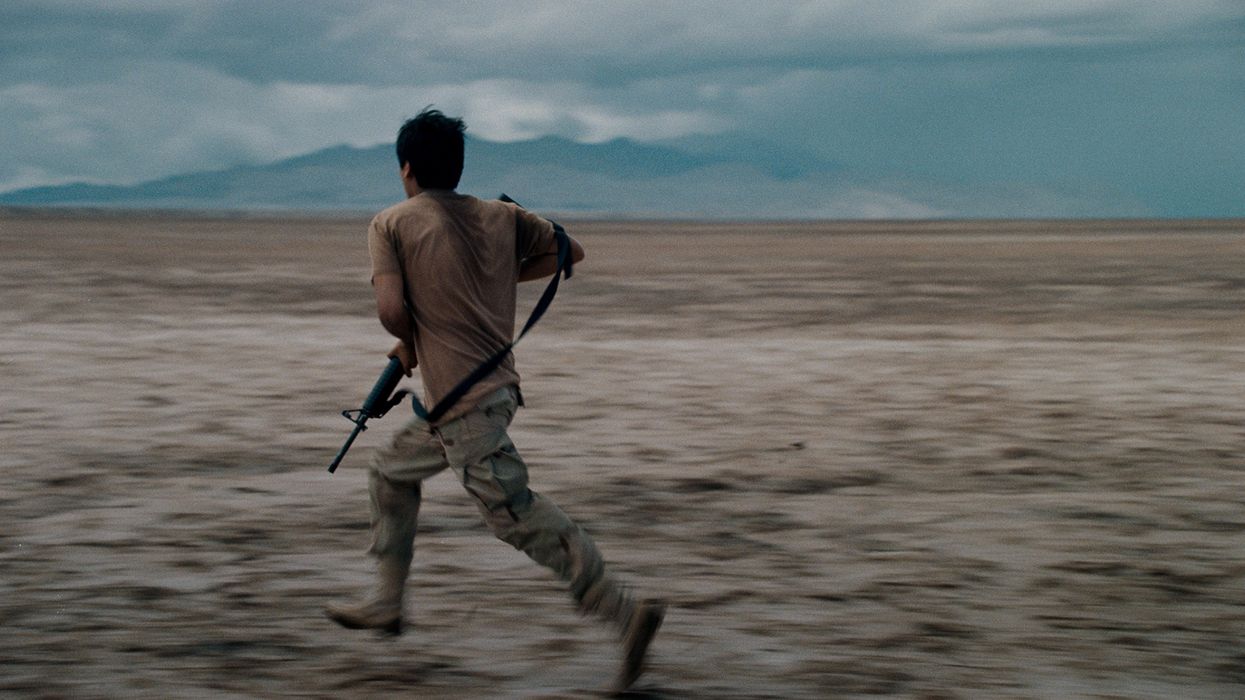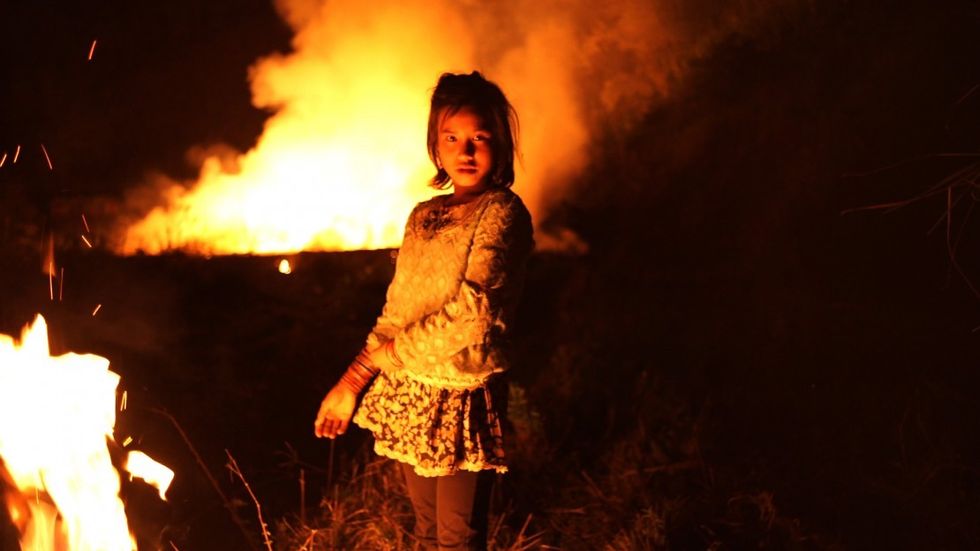Meryl Streep, George Clooney and the Global Controversy at Berlinale
This year’s Berlin Film Festival came with a special focus on refugee and immigrant cinema, but first it had to weather the bad press on those very subjects from its two biggest guests.

Berlinale, one of Europe's most influential film festivals, made international news on its first day. But not all news is good news. When an Egyptian journalist asked Jury President Meryl Streep about her familiarity with Middle East and North African cinema during a press conference, Streep stumbled on her words: “We're all Africans, really.”
Her answer — which you can read her own take on here — carried unintended significance: the seven-member jury she was heading was all white, and only one film out of the 19 in competition hailed from Africa.
But the controversy didn't end there. During the press conference for opening night selection Hail, Caesar!, George Clooney took umbrage with a questioner’s insinuation that he wasn’t doing enough to help Europe’s refugee crisis. Clooney, who was meeting with Germany's Chancellor Angela Merkel later that week to discuss that very issue, snapped at the reporter: “I’d like to know what you are doing to help the situation.”
How do filmmakers tell engaging stories about serious geopolitical topics without lecturing or dehumanizing?
As it happened, Streep’s jury awarded the Golden Bear prize to Fire at Sea, an Italian documentary from Gianfranco Rosi that tackles refugee concerns head-on. The movie is set on the island of Lampedusa, home of a small local Italian population that has also, as of late, become a stopover for African and Arab migrants braving incredibly treacherous journeys to Europe. Rosi focuses on one adolescent boy who lives on Lampedusa as he engages in childlike activities (making slingshots, training his lazy eye), but the film cuts between him and the scores of refugees being interned elsewhere on the island after their over-stuffed ships are rescued from the Mediterranean.
For filmmakers, movies like Fire at Sea present a conundrum: how do you tell engaging stories about serious geopolitical topics without lecturing or dehumanizing? This was a problem also addressed in Berlinale Talents, the festival’s parallel conference portion, and reflected in many other festival selections outside of competition. Experimental documentary Havarie also featured refugee boats in the Mediterranean as its jumping-off point. Houses Without Doors pairs footage of Syria’s decaying political situation with audio from survivors of the Armenian genocide. Between Fencestackled Israel’s own refugee problems by following theater exercises inside detainment camps where migrants to the country are placed.
There was much for social-issues filmmakers to learn at Berlinale, although maybe not from the Golden Bear winner itself. Several critics and festival-goers I chatted with were disappointed in Fire at Sea. I was, too; the editing choices Rosi employs don’t seem to serve the film’s central thesis. While he’s instructing us to pay attention to refugees, he also refuses to let us meet any of them up close, or even give us a geographic sense of where they are on the island in relation to his young protagonist. It’s a bold filmmaking decision, to be sure, but one that aspiring documentarians should be wary of, considering its elliptical, hands-way-off approach can prove alienating.

As one prominent Berlinale guest remarked, you no longer even need a camera to make a movie. Hence, the rise of the video essay. A Berlinale Talents panel on the subject, featuring Kevin B. Lee and kogonada, was packed to the brim despite taking place at the same time as a Q&A with Dogme 95 legend Thomas Vinterberg. The panel highlighted the idea that the notion of filmmaking is forever evolving — into the worlds of politics, criticism, social ethnography and beyond.
Among the indie directors I got to talk to at the festival — many of whom were bringing films to Berlin for the first time — a common thread was the drive they shared in scrounging up the (often quite non-traditional) funds and resources required to bring their stories to life. Tomás Weinreb and Petr Kazda, directors of opening-night Panorama selection I, Olga Hepranova, needed funding from four countries to realize their black-and-white, sex-and-death-filled, true story of a young Czech woman executed after committing a grisly act of mass violence.

Similarly, Johnny Ma, director of Forum dramatic thriller Lao Shi (Old Stone), had to navigate the relatively uncharted waters of indie financing in the blockbuster-driven Chinese film market. And T.W. Pittman and Kelly Daniela Norris co-directed Ghana’s first-ever Berlinale feature, Nakom, but had to rely on an entire village’s generosity while filming in areas with no electricity or running water.
None of these productions were particularly high-concept. Even The Lovers and the Despot, a documentary touching on Kim Jong-il, the Korean War and international diplomacy, didn’t require extravagant means to make — just the life rights from one key family. Yet these films enjoyed strong showings in Berlin, and, in many cases, promising returns in the global distribution marketplace. On a world stage as big as Berlinale’s, indie film has to fend for its own; the Streeps and Clooneys of the world aren’t going to do the heavy lifting for us.
So: What are you doing?
For more Berlinale catch-up: Kevin B. Lee and his colleagues at Fandor recapped their own festival experiences, highlighting some of the big films I didn’t get to see, including Terence Davies’ A Quiet Passion, Mia Hansen-Love’s Things to Come (winner of the Silver Bear for Best Director) and Lav Diaz’s (eight-hour!) competition epic A Lullaby to the Sorrowful Mystery (winner of the Silver Bear Alfred Bauer Prize).
You can find all our Berlinale 2016 coverage here.











